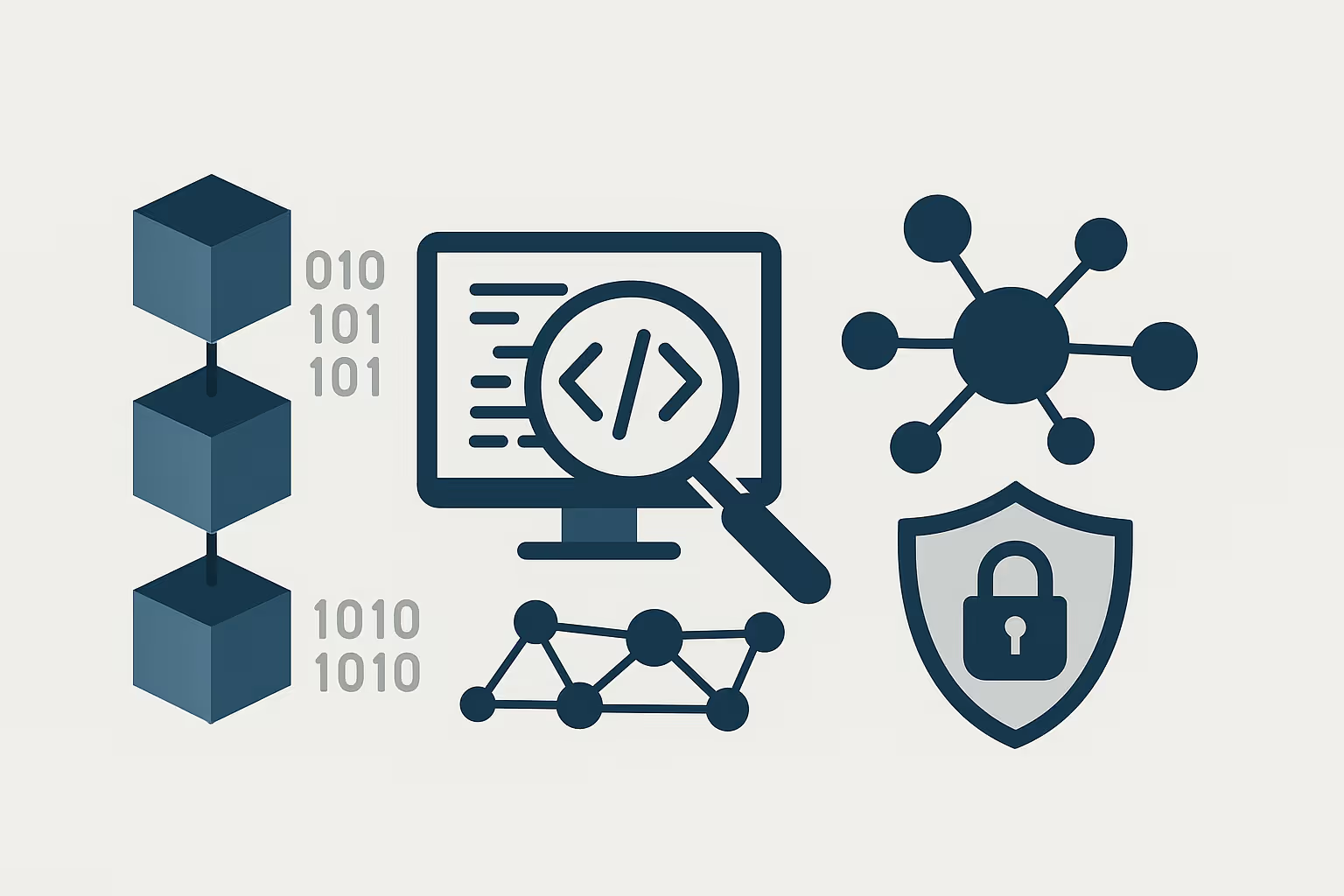Advance your innovation in distributed ledger technology. Blockchain development companies and enterprises across the U.S. are continuously building next‑generation ledgers, smart contracts, decentralized applications (dApps) and secure transaction platforms. Many of these activities qualify for the federal R&D Tax Credit under IRC §41, with additional state‑level opportunities.


Examples of qualifying activities in blockchain development
- New Blockchain or Ledger Architecture Designing a novel blockchain protocol (e.g., proof‑of‑stake variant), or customizing a ledger to improve throughput, latency or energy use.
- Smart Contract & dApp Development Building and testing advanced smart contract systems, decentralized logic, wallet/contract interaction flows, cross‑chain bridges.
- Security & Cryptography Research Experimenting with new cryptographic primitives, consensus integrity, ledger immutability enhancements, data privacy in decentralized systems.
- Distributed Infrastructure & Node Engineering Developing peer‑to‑peer network architectures, optimizing nodes, wallets, API infrastructure that supports blockchain deployments.
- Integration & Interoperability Solutions Addressing technical uncertainty in cross‑chain communication, ledger interoperability, tokenization components, enterprise‑blockchain integration.
- Scalability / Performance / Sustainability Projects Projects that aim to reduce energy usage, increase transaction per second, reduce latency or improve resource use in mining/ledger operations.
What qualifies as R&D in Blockchain Technology?

To qualify, activities must:
- Pursue a permitted purpose such as a new or improved product, process, or technique (for example, a novel consensus mechanism, a high‑throughput ledger, or a secure wallet architecture).
- Address technical uncertainty about capability, method or design (e.g., can the blockchain scale, can smart contracts interoperate, can latency be eliminated, can cryptography be strengthened?).
- Follow a process of experimentation through prototyping, simulation, peer‑to‑peer testing, iteration, or stress testing.
- Be technological in nature, grounded in computer science, cryptography, distributed systems, ledger engineering or software/hardware design.
Qualified Research Expenses (QREs)
The IRS and state programs allow several categories of Qualified Research Expenses (QREs) that may be claimed:
Roles commonly involved in qualifying activities
- Blockchain Protocol Engineers, Distributed Systems Researchers
- Smart Contract Developers, dApp Architects, Wallet Engineers
- Cryptography Specialists and Security Engineers
- DevOps / Infrastructure Engineers managing node networks or ledger clusters
- Analytics/Data Scientists modelling crypto flows
- External crypto research labs or academic partners
What does not qualify
- Routine ledger deployment or standard wallet implementation without experimentation or innovation
- Adopting an off‑the‑shelf blockchain solution without technically advancing it
- General business, management, marketing, or administrative tasks
- Infrastructure/land purchases not tied to documented R&D experimentation
Compliance and Documentation
Following the One Big Beautiful Bill Act (OBBBA) signed July 4, 2025, §174 now allows immediate expensing of domestic research expenses for tax years beginning on or after January 1, 2025. Taxpayers may also elect optional amortization under new §174A. Foreign research expenses must still be amortized over 15 years. This is separate from the §41 credit but impacts overall tax planning.
Maintain robust documentation:
- Project briefs/hypotheses (e.g., “Can the new cross‑chain bridge support 5k TPS with <50ms latency under adversarial testing?”)
- Testnet logs, simulation results, iteration/version history, failure logs and redesigns
- Time tracking of personnel by project and research vs non‑research allocation
- Resource usage documentation (nodes, compute hours), wallet key‑management trial logs, smart‑contract test logs This supports the four‑part test (permitted purpose, uncertainty, experimentation, technological) for R&D under §41.
Frequently Asked Questions
Yes — if the company is actively engaged in developing or improving blockchain technologies, smart contracts, infrastructure, or tackling technical uncertainty via experimentation, then activities can qualify under §41.
Employee wages for engineers/analysts in experiment projects, supplies (hardware, wallet nodes etc.), cloud compute and third‑party contract research fees (subject to limits).
Projects involving creation of new ledger protocols, smart contract platforms, decentralized app frameworks, cross‑chain integration, performance/scalability enhancements, or novel cryptographic/security features.
Routine wallet deployment, standard token issuance without innovation, marketing/promotional efforts, and purely operational maintenance.
Savings vary depending on size of business, scope of innovation, and documentation rigour. In some cases, companies targeting blockchain/digital asset development have claimed substantial credits by properly documenting their experimentation and development efforts.
Maintain clear project charters defining the technical problem or uncertainty, logs of development and testing, compute/hardware usage records, time allocation by research vs non‑research roles, contract research agreements, and summary of results/outcomes. This supports audit defence and compliance with §41 standards.
Next Steps
Use our calculator to estimate your potential federal and state benefits
Schedule a consultation to structure your row crop research activities
If you are innovating in agriculture, you may already be doing R&D. Let's make sure you are rewarded for it.
Contact Strike Tax Advisory
Ready to maximize your R&D tax credits? Get in touch with our team of experts.

Software & Technology
With just a little info, our Strike Experts can help you start your R&D tax credit journey.
Got questions?
We’ll walk you through our process and take the time to understand yours to make sure you get the most back.
Schedule a MeetingRelated Sub-Industries
Does your state qualify for the State R&D Tax Credit?
Benefits for the R&D Tax Credit vary from state to state. Get an accurate estimate of your potential state tax credit!






